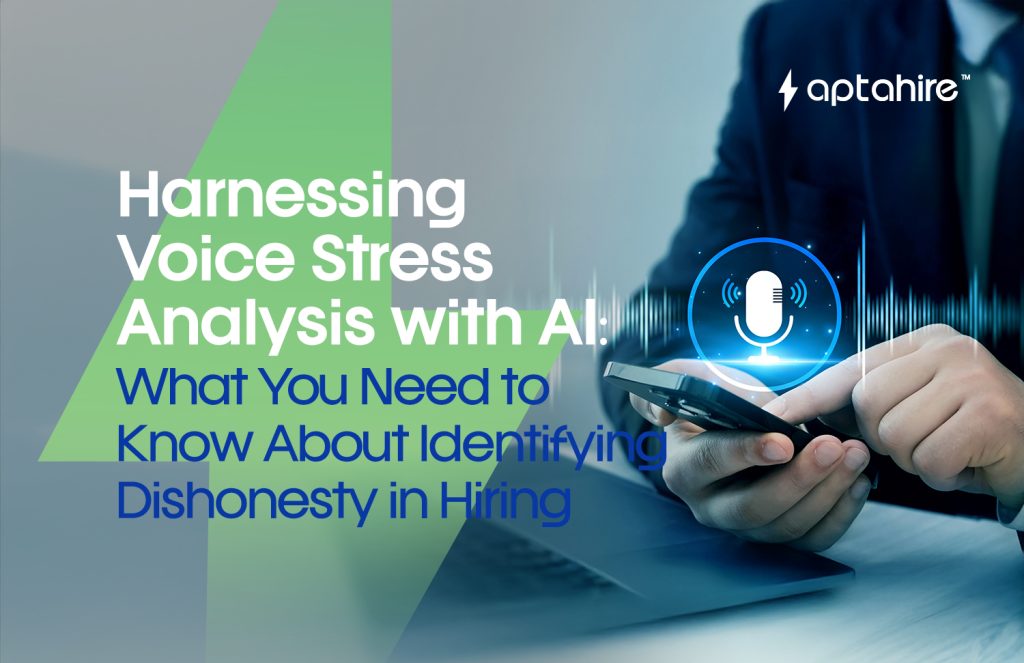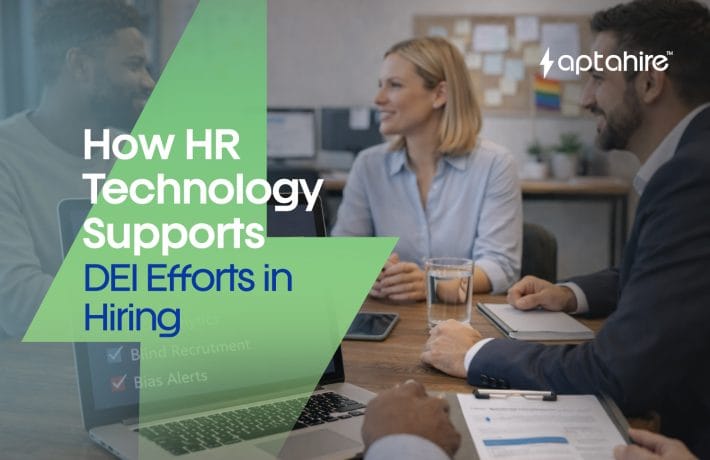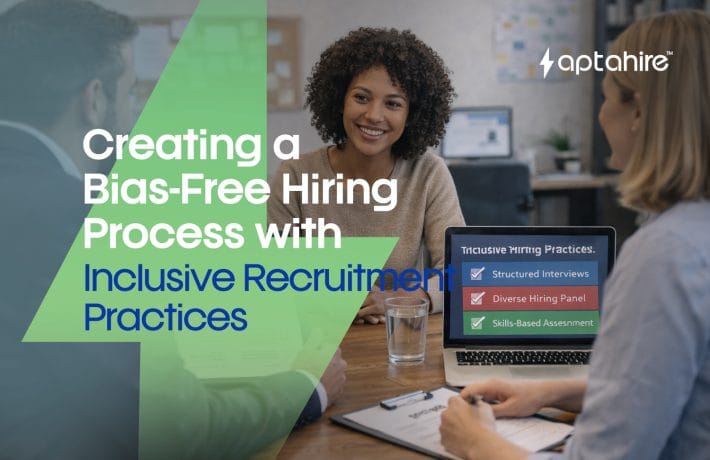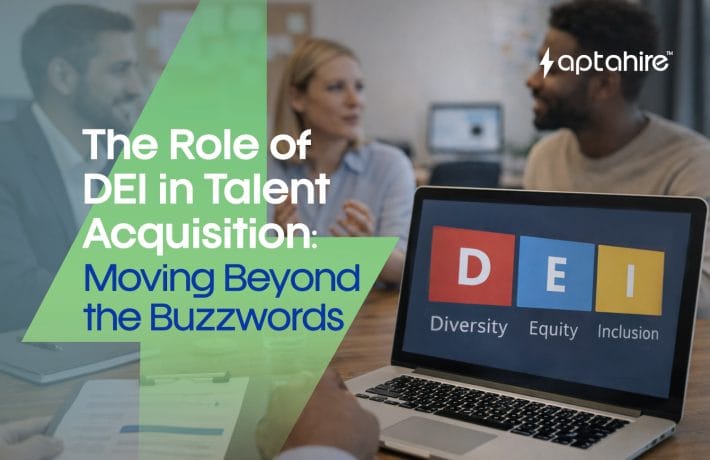Harnessing Voice Stress Analysis with AI: What You Need to Know About Identifying Dishonesty in Hiring

Let’s be honest, hiring the right person is hard.
You read resumes that sound too good to be true, conduct interviews where everyone says what you want to hear, and still end up making the wrong call sometimes. That’s not your fault; candidates are coached, prepared, and sometimes even rehearsed. So, how can you see through the polish and get to the truth?
That’s where AI-powered Voice Stress Analysis (VSA) steps in, like your own personal lie detector, but smarter, subtler, and designed for the modern digital age.
In this blog, let’s break down what VSA is, how it works with AI, and why it might just become your next favorite hiring tool.
What Is Voice Stress Analysis (VSA), Really?
Voice Stress Analysis is a technology that analyzes a person’s voice to detect stress, hesitation, micro tremors, and vocal cues that may indicate deception or nervousness. But don’t confuse it with a polygraph, it doesn’t need wires or intrusive setups.
Now, add AI into the mix, and VSA becomes even more powerful. It can process thousands of vocal patterns, analyze tone, pitch, pauses, and even emotional markers, in real-time, during a virtual interview.
It’s like having a behavioral psychologist in the room… except it’s AI-driven and tireless.
Why Use VSA in Hiring?
Let’s say you’re interviewing for a sensitive position, maybe in cybersecurity, finance, or a healthcare role requiring compliance and integrity. The stakes are high. One wrong hire can be expensive and even dangerous.
Here’s where AI-powered voice analysis steps in and says:
“Wait a minute… that hesitation didn’t match the context of the question.”
It highlights inconsistencies that might not be obvious to the human ear. For example:
- A sudden pitch change when discussing past employers
- Unusual pauses when asked about job transitions
- Emotionless responses when talking about achievements
This doesn’t mean the candidate is lying, but it does give you a signal worth probing deeper.
How Does AI Actually Detect Dishonesty?
Great question.
AI isn’t magic, it’s math, data, and patterns. Here’s how it works:
- Baseline Mapping
The system establishes a baseline by analyzing how a candidate normally speaks.
- Real-Time Deviation Tracking
It tracks pitch, tone, tempo, and tremors throughout the conversation.
- Contextual Awareness
It correlates stress markers with the type of question being asked. (E.g., a pause after “Tell me about your last job” vs. “What’s your favorite color?”)
- Flagging Inconsistencies
If the candidate shows signs of stress or vocal anomalies during specific questions, the system flags it for review.
So no, it’s not about catching liars with flashing red lights. It’s about gathering subtle data to make more informed hiring decisions.
But Wait… Is It Ethical?
That’s the million-dollar question. The answer? Yes, if used responsibly.
- Consent is key. Candidates must know their interviews will be AI-assisted.
- Context matters. Don’t reject someone just because they were nervous.
- Bias control. Modern AI tools are trained on diverse datasets to minimize bias, and they evolve over time.
When used as a supportive tool, not a sole decision-maker, VSA becomes an ally, not an executioner.
Benefits of Voice Stress AI in Interviews
Here’s what companies are loving about it:
- Faster red flags. Save time by digging into questionable answers early.
- Reduced hiring risks. Spot potential dishonesty or hesitation in high-stakes roles.
- Unbiased insights. AI doesn’t have a “gut feeling.” It has data.
- Better follow-ups. Ask smarter, more relevant follow-up questions in real-time.
Real-Life Example
Imagine you’re hiring a compliance officer for a fintech startup.
Two candidates sound equally good on paper. But during the interview, one of them shows repeated voice tremors and pauses when asked about a past compliance failure they managed.
That’s your cue, not to reject, but to dive deeper.
Turns out, they were involved in a situation that wasn’t mentioned on their resume. Thanks to AI VSA, you just avoided a possible PR disaster.
Where Is This Tech Headed?
AI-based voice analysis is just getting started. Future tools might:
- Combine voice with facial micro-expression tracking
- Cross-analyze with resume inconsistencies
- Give real-time confidence scores during interviews
And as remote work becomes the norm, these tools will only become more essential.
What It’s NOT
Let’s be clear. AI voice stress analysis is not:
- A polygraph test
- 100% accurate or foolproof
- A tool for judging accents or fluency
It’s a supporting tool, not a replacement for human judgment.
Final Thoughts
In the ever-evolving world of virtual hiring, trust is the currency. AI-powered Voice Stress Analysis isn’t here to play detective, it’s here to help you make smarter, more honest, and more human decisions.
If you could listen beyond the words… would you?
TL;DR (Too Long; Didn’t Read)
- AI-based Voice Stress Analysis helps detect dishonesty by analyzing speech patterns.
- It flags stress, hesitation, and emotional inconsistencies during virtual interviews.
- Used ethically, it reduces hiring risks and helps recruiters ask better questions.
- It’s not about punishment; it’s about clarity, consistency, and confidence in hiring.
FAQs
1. What is Voice Stress Analysis (VSA) in AI hiring?
Voice Stress Analysis (VSA) is a technique used to detect stress levels in a person’s voice, which can be an indicator of dishonesty. When powered by AI, it helps hiring platforms evaluate candidates’ truthfulness during interviews by analyzing vocal pitch, tone, frequency, and micro-tremors.
2. How does AI-powered Voice Stress Analysis work?
AI algorithms analyze vocal patterns in real-time, picking up on subtle cues such as hesitation, tone changes, and speech irregularities that may suggest stress or deceptive behavior. These cues are then compared against baseline patterns to flag potential inconsistencies.
3. Can VSA with AI actually detect lies?
Not exactly. AI can’t directly detect lies, but it can identify stress patterns that are commonly associated with dishonesty. It serves as a red flag mechanism, prompting recruiters to dig deeper into suspicious responses.
4. Is Voice Stress Analysis reliable in interviews?
While not foolproof, AI-powered VSA is improving rapidly in accuracy. When combined with other interview data points (like facial expressions or behavioral analytics), it becomes a valuable layer in the evaluation process.
5. Is VSA intrusive or unethical?
When used transparently and with consent, AI-based VSA is an ethical tool. It’s important for companies to inform candidates that voice analytics are being used, ensuring fairness and compliance with data privacy laws.
6. Can VSA be fooled by candidates who prepare well?
It’s possible but unlikely. AI VSA doesn’t rely on what’s being said, it focuses on how it’s being said. Even the most confident liars may unconsciously exhibit stress-related voice patterns that AI can pick up.
7. How does VSA help in virtual interviews?
In remote interviews, recruiters miss out on in-person cues. VSA fills this gap by providing real-time feedback on vocal stress, helping to maintain integrity and reduce fraudulent or coached responses.
8. Is VSA only useful for high-stakes hiring (like finance or security roles)?
While it’s especially valuable in high-trust roles, VSA is becoming popular across industries to ensure candidates are genuine and culturally aligned, especially in leadership, sales, and customer-facing positions.
9. How do candidates feel about AI analyzing their voice?
Some may feel nervous at first, but with proper explanation and assurance about privacy, most candidates appreciate the fairness and objectivity AI adds to the process. It actually reduces human bias.
10. Will VSA replace human interviewers?
Not at all. VSA is a support tool, not a replacement. Final decisions still rest with human recruiters. AI just gives them deeper insights to make more informed, fair, and confident hiring choices.



